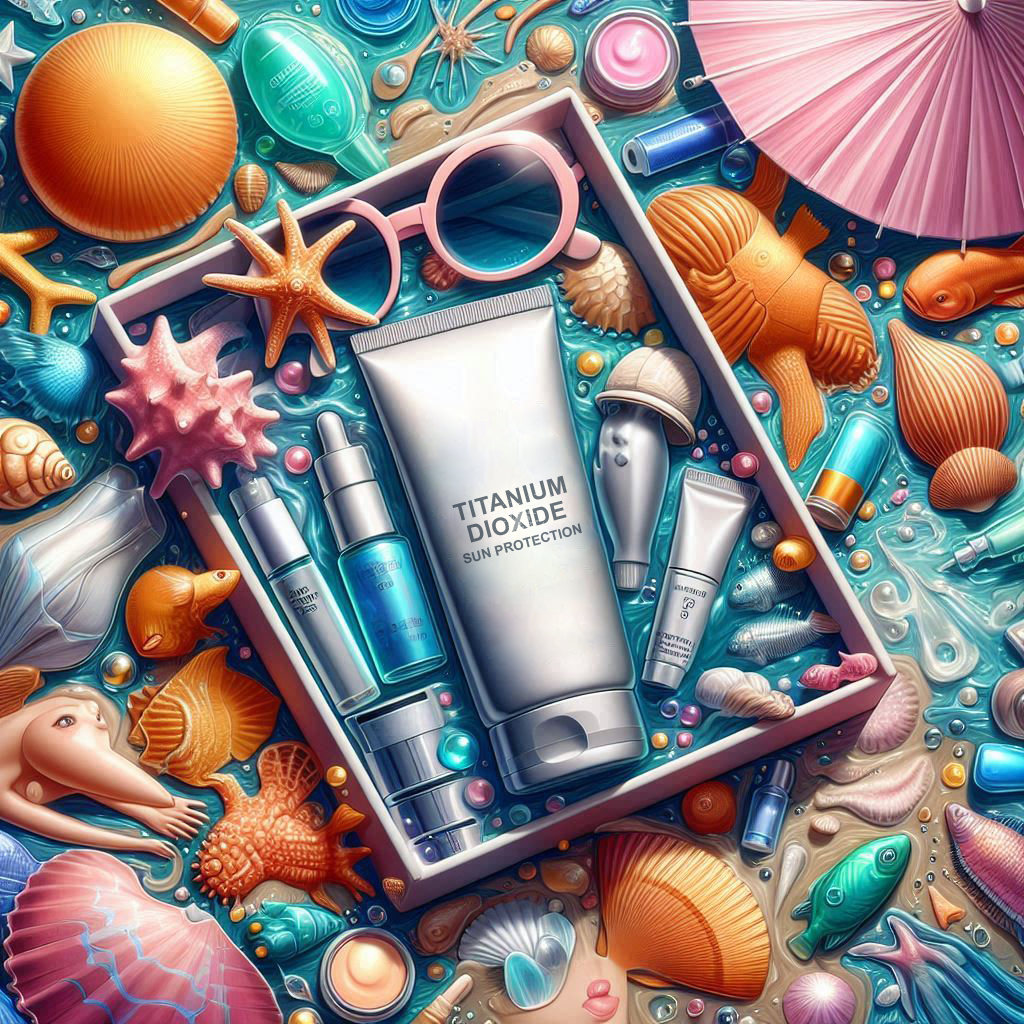Titanium Dioxide Sun Protection: As you stride into your local pharmacy, your eyes scan the crowded sun care aisle. Amidst colorful bottles and flashy labels, there lies an ingredient you’ve probably heard of but might not fully understand: Titanium Dioxide. This natural mineral is becoming increasingly popular in sunscreens, but why? This article dives deep into the world of dioxide as a sun-protective agent to help you decide if it’s the right choice for your skincare routine.
Introduction to Titanium Dioxide Sun Protection
Titanium dioxide is a natural, bright white pigment that is widely utilized for its effectiveness in providing sun protection. This compound works primarily by scattering and absorbing UV radiation, thereby protecting your skin from the sun’s harmful effects.
Why Choose Titanium Dioxide?
- Broad-Spectrum Protection: It provides robust protection against both UVA and UVB rays.
- Suitability for Sensitive Skin: Known for its gentle nature, making it ideal for sensitive skin.
- Photostable: Unlike some other filters, it doesn’t degrade easily in sunlight.
Comparing Physical and Chemical Sunscreens: Titanium Dioxide Sun Protection
Understanding the difference between physical and chemical sunscreens can be crucial in choosing a product that aligns with your skin’s needs and health concerns.
Physical Sunscreens
These contain active mineral ingredients, such that they typically include titanium dioxide or zinc oxide. They work by sitting on top of the skin to deflect and scatter damaging UV rays away from the skin.
- Pros:
- Less likely to cause skin irritation
- Immediate effect upon application
- Longer shelf life
- Cons:
- Can leave a white cast on the skin
- May be thicker and less spreadable
Chemical Sunscreens
These sunscreens absorb into the skin and then absorb UV rays, convert the rays into heat, and release them from the body.
- Pros:
- Tends to be lighter and more wearable for daily use
- Less product is needed to cover the skin
- Cons:
- Can cause increased skin sensitivity
- It takes about 20 minutes to become effective after application

The Science Behind Titanium Dioxide Sun Protection
Titanium dioxide acts like a mirror on the skin, reflecting the sun’s rays. Its effectiveness as a UV filter can be attributed to its high refractive index, which makes it resistant to discoloration under UV light.
Environmental Impact
Concerns have been raised about the environmental impact of sunscreens, particularly regarding the potential harm that some chemical UV filters can cause to marine life. Titanium dioxide, however, is generally considered to be a safer alternative in terms of environmental impact.
Is Titanium Dioxide Right For You?
Pros of Titanium Dioxide
- Gentle on the Skin: Rarely causes skin irritation, which is beneficial for those with sensitive skin.
- Effective UV Protection: Guards against the harmful effects of sun exposure.
- Doesn’t Clog Pores: Less likely to cause acne or breakouts.
Cons of Titanium Dioxide
- Cosmetic Elegance: The white cast can be off-putting for darker skin tones unless micronized forms are used.
- Inhalation Risks: There’s some concern about the inhalation of titanium dioxide particles, primarily from spray sunscreens.
Conclusion: Titanium Dioxide Sun Protection
When it comes to sun protection, understanding what you’re applying to your body is key. For those with sensitive skin or concerns about chemical exposure, titanium dioxide-based sunscreens are a great option. They offer effective, broad-spectrum protection with fewer risks of irritation or environmental harm.
It’s important to remember that the best sunscreen is the one you will use consistently. No matter your choice, reapplying sunscreen every two hours and after swimming or sweating is crucial for effective sun protection. So, could titanium dioxide be the sun guard your skin has been waiting for? Given its benefits, it very well might be, especially if you prioritize natural, effective, and sensitive skin-friendly ingredients in your skincare products.
“Remember: Protecting your skin today can prevent significant health issues tomorrow. Choose wisely, apply generously!”
Anatase 101: Exploring Its Unique Characteristics





